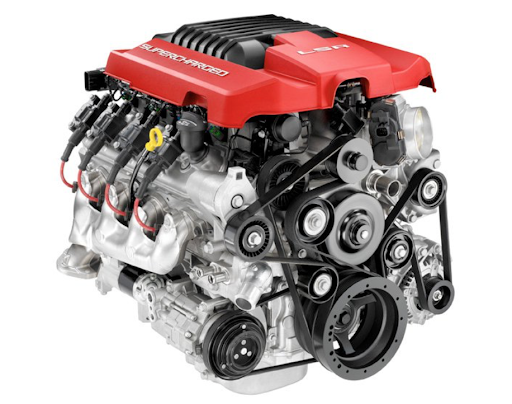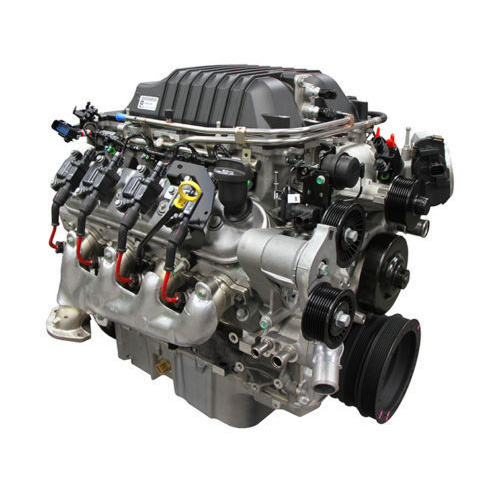Considering buying an LSA Crate Motor? You MUST read this before you do....
1st Jun 2020
So you are considering an LSA crate motor?
It's no surprise that the LSA engine would be in your top 3 considerations for your next engine upgrade, So it is important to really understand the NOT so obvious when you consider the LSA as the right choice for your build.
With the increasing popularity around the LSA crate motor, We highlight the main factors for you to consider in weighing up if the LSA is the right choice for you or not.
Lets take a look at some of the common conversations we have about the LSA that you can probably relate to..
Frequent LSA Conversations
Pro
Awesome value for money - I mean, You are getting an entire 6.2L supercharged engine for under $15k!
Con
Additional gear to support the engine such as LSA controller module, Engine mounts, Intake, Trigger boxes can quickly add $5k - $10k + to the cost
Pro
One of the most powerful LS engines to be released, Produces 556 horsepower from factory!
Con
For the same investment, What could you achieve in horsepower from your current engine??
Pro
These things can make massive power - I can do a pulley swap, Port heads, blower & snout - Chuck a cam in & I got a monster!
Con
Yes, But how long will all that additional horsepower last for....
Pro
It's awesome value for what you get. You cant even get a built engine to suit boost for anywhere near that price!
Con
Ask your engine builder about the issues the LSA can face when altering it from factory. The LSA internals are NOT designed to handle any more power than it makes from factory
These are just some of the conversations that go on about the LSA engine & the thought process behind it.
So, Before you invest your hard earned money, It is important you know the particulars on the LSA engine as well as some things that you may not already know.
LSA Technical Specs

| Part Number | 19331507 |
| Engine Type | LS Gen IV Small Block V8 |
| Cubic Inch | 376ci 6.2L |
| Bore x Stroke | 4.065" x 3.622" |
| Block (12623968) | Cast aluminium with six-bolt, cross-bolted main caps |
| Crank (12603616) | Forged steel with eight-bolt flange |
| Connecting Rods (12604857) | Powdered metal |
| Pistons (12625119) | Hypereutectic aluminum |
| Camshaft Type (12623064) | Hydraulic roller |
| Valve Lift | .492" intake / .480" exhaust |
| Camshaft Duration (@.050 in.) | 198° intake / 216° exhaust |
Cylinder Heads (P/N 12626958) | Aluminium L92-style port: “as cast” with 68-cc chambers |
Valve Size | 2.160 intake / 1.590 exhaust |
Compression Ratio | 9.1:1 |
Rocker Arms | Investment-cast, roller trunnion |
Rocker Arm Ratio | 1.7:1 |
Recommended Fuel | Premium pump |
Maximum Recommended rpm | 6,600 |
Reluctor Wheel | 58X |
LSA Features
- Designed, Engineered & Tested by Chevrolet Performance
- Increasingly popular choice of engine for hot rods, muscle cars, LS swaps & more thanks to its great balance of performance & value
- The 2016 onwards variant features the same engine as the ZL1
- 556 Horsepower & 551 lb.ft of torque
- Aluminum block
- Forged steel crank
- Toughened cast pistons & rods
- Integrated piston cooling oil jets
- high-flow cylinder heads that support the airflow pushed by a 1.9L Eaton TVS supercharger
- Comes complete with the exception of LSA controller & certain pulleys/brackets & gearbox requirements
Is an LSA the RIGHT choice for me?
So, In weighing up the PROS & CONS, LSA specs & the LSA features, Ask yourself this:
- Will I keep the LSA standard?
- Am I happy dropping this LSA in as an upgrade replacement of my current engine?
- Is this to suit a freshen up, Old school hot rod, Custom LS swap OR just a tough cruiser?
- Am I happy to stick with the standard boost, recommended fuel & standard internals of the LSA as it arrives?
- I am aware this engine in NOT intended for racing?
- Am I aware that by modifying ANYTHING on this engine will void the warranty?
If you answered YES to the above, Then the LSA is an awesome upgrade for you, You can stop reading now & have the confidence that the LSA is one of the best value factory LS engines ever produced.
Great choice, Enjoy your new power plant!
However... If you answered NO, You MUST read on!
So, You want to modify the stock LSA..
Now, Ask yourself this:
- Will I add more boost?
- Will I look at porting the blower, Heads or snout?
- Am I planning on doing a cam upgrade?
- Am I going to push this past 6,200 RPM?
- Will I look at E85?
- Am I considering a bigger blower - 2650, 2900, 4500 or even turbo??
- Will I drive it hard with both street/strip use?
- I want to make as much horsepower as I can from this?
If you answered YES to the above, Then the LSA is NOT for you!
We advise against the LSA in being the choice for your build.
We recommend you plan your build & set up the block, Rotating assembly, Bearings etc to EXCEED the horsepower goal that you wish to achieve.
Here is why:
Issues with the LSA engine after altering the factory set-up
Wether you ask your mate, Engine builder or even read a review from an online forum, Its not long before you find out that the LSA engine does come with its problems.
Common known issues include:
- Spun main bearings
- Tight bearing clearances
- Ring gaps
- Stock oil pump
- Stock lifters
- Brittle sleeves
- Notorious for cracks appearing in the bores
- Stock rods & pistons easily distort under high RPM & high boost
- Stock fuel cut off is 6,200 RPM
- LSA block, Rods, Bearings, Pistons & rings are NOT designed to produce, Handle or support anymore power than the 556 horsepower that it came out with
The LSA stock pistons & rods are notorious for not coping well under high RPM & high boost builds, Although the pistons & rods are significantly hardened & tougher than other LS engines, There are many horror stories that include bent rods & beyond!
The standard GM sleeves are surprisingly quite thin & incredibly brittle considering the amount of power that the LSA produces compared to the LS3 & even LS7 engines. There is significant distortion under extreme conditions such as high boost use resulting in cracks in the sleeves, Which usually cracks the aluminum behind the sleeve wall also. This can lead to catastrophic & expensive failure.
The most common cause of failure & damage to the LSA is bearing failure - What is the cause of bearing failure? High loads at low RPM & just about any load at high RPM.
LSA rods and main caps warp under high RPM to the point that the bearing spins inside the bore & is at high risk of insufficient lubrication causing the bearing to become stuck to either the rod or crank in the bore.
You hear most common engine failures from people who are not actually driving the car hard. They will go to & from work - Park it somewhere. Come back to find that when you start the car it either cranks really slow OR it wont crank at all.
Low RPM bearing failure is caused by excessive wear & tear on the engine & provides more tell tale signs such of an upcoming problem such as a knock in the bottom end from either a main or rod. This will occur before the engine fails or seizes on you.
The LSA engines come factory with a stock fuel cut off at 6,200 RPM. This is for obvious safety & to avoid starvation of fuel.
When increasing the horsepower by altering the engines factory set-up, Pushing the RPM from 6,200 to 6,500 or even 7,000 RPM is going to see you with increased horsepower potential, However you really need to weigh up just how much power you are picking up at this mark.
The absolute PEAK power range for the LSA is approx. 6,650 RPM with a suggested mark of 6,200 to 6,400 RPM.
With that in mind, The LSA factory fuel cut off is set at 6,200 RPM, So you need to ask yourself is that slight extra power from 6,200 RPM to say, 6,500 or even 7,000 RPM really worth risking detonation of your engine??
What are my options?
After having read the above, The decision comes down to what your intentions are & what you are planning to do with your new engine.
If you see the exceptional value in purchase a stock standard LSA engine & swapping it into something with less power, This is the perfect engine for you.
If you plan on making as much power as you can, You need to consider a built engine specifically designed to support the power you plan on making.
Investing in the right gear can be your peace of mind knowing that the engine will handle more than you currently make.
This can be done by selecting the right combination of gear including:
- Alloy OR Iron block
- Forged OR Billet aftermarket rotating assembly rated to minimum 900 + horsepower
- ARP fasteners rather than GM
- Race series bearings as opposed to stock OEM bearings
- Bigger power adder such as 2300 2.3L, 2650 2.65L, 2900 2.9L 4500 4.5L or Turbo
- Fuel system capable of supporting higher flow
- Oiling system capable of supporting higher flow
- Much more
Taking the time to choose the right engine is important.
Invest some time in researching & speaking to some of the industry experts on their own experience with the LSA engine & if it is the right direction for you.
Before you purchase, Make an informed decision based off the lessons other have learnt & experiences shared from other.
This information is there to help you weigh up all factors around the upgrade.

